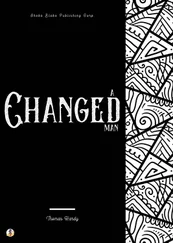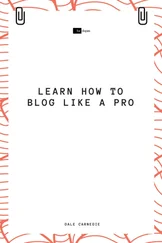Sheba Blake - Ali Pacha
Здесь есть возможность читать онлайн «Sheba Blake - Ali Pacha» — ознакомительный отрывок электронной книги совершенно бесплатно, а после прочтения отрывка купить полную версию. В некоторых случаях можно слушать аудио, скачать через торрент в формате fb2 и присутствует краткое содержание. Жанр: unrecognised, на английском языке. Описание произведения, (предисловие) а так же отзывы посетителей доступны на портале библиотеки ЛибКат.
- Название:Ali Pacha
- Автор:
- Жанр:
- Год:неизвестен
- ISBN:нет данных
- Рейтинг книги:3 / 5. Голосов: 1
-
Избранное:Добавить в избранное
- Отзывы:
-
Ваша оценка:
- 60
- 1
- 2
- 3
- 4
- 5
Ali Pacha: краткое содержание, описание и аннотация
Предлагаем к чтению аннотацию, описание, краткое содержание или предисловие (зависит от того, что написал сам автор книги «Ali Pacha»). Если вы не нашли необходимую информацию о книге — напишите в комментариях, мы постараемся отыскать её.
Ali Pacha — читать онлайн ознакомительный отрывок
Ниже представлен текст книги, разбитый по страницам. Система сохранения места последней прочитанной страницы, позволяет с удобством читать онлайн бесплатно книгу «Ali Pacha», без необходимости каждый раз заново искать на чём Вы остановились. Поставьте закладку, и сможете в любой момент перейти на страницу, на которой закончили чтение.
Интервал:
Закладка:
Alexandre Dumas
Ali Pacha
First published by Sheba Blake Publishing Corp. 2021
Copyright © 2021 by Alexandre Dumas
All rights reserved. No part of this publication may be reproduced, stored or transmitted in any form or by any means, electronic, mechanical, photocopying, recording, scanning, or otherwise without written permission from the publisher. It is illegal to copy this book, post it to a website, or distribute it by any other means without permission.
Alexandre Dumas asserts the moral right to be identified as the author of this work.
Sheba Blake Publishing Corp.
2288 Crossrail Dr
Atlanta, GA 30349
support@shebablake.com
First edition
Cover art by Sheba Blake
Editing by Sheba Blake
This book was professionally typeset on Reedsy
Find out more at reedsy.com

Chapter I

The beginning of the nineteenth century was a time of audacious enterprises and strange vicissitudes of fortune. Whilst Western Europe in turn submitted and struggled against a sub-lieutenant who made himself an emperor, who at his pleasure made kings and destroyed kingdoms, the ancient eastern part of the Continent; like mummies which preserve but the semblance of life, was gradually tumbling to pieces, and getting parcelled out amongst bold adventurers who skirmished over its ruins. Without mentioning local revolts which produced only short-lived struggles and trifling changes, of administration, such as that of Djezzar Pacha, who refused to pay tribute because he thought himself impregnable in his citadel of Saint-Jean-d’Acre, or that of Passevend-Oglou Pacha, who planted himself on the walls of Widdin as defender of the Janissaries against the institution of the regular militia decreed by Sultan Selim at Stamboul, there were wider spread rebellions which attacked the constitution of the Turkish Empire and diminished its extent; amongst them that of Czerni-Georges, which raised Servia to the position of a free state; of Mahomet Ali, who made his pachalik of Egypt into a kingdom; and finally that of the man whose, history we are about to narrate, Ali Tepeleni, Pacha of Janina, whose long resistance to the suzerain power preceded and brought about the regeneration of Greece.
Ali’s own will counted for nothing in this important movement. He foresaw it, but without ever seeking to aid it, and was powerless to arrest it. He was not one of those men who place their lives and services at the disposal of any cause indiscriminately; and his sole aim was to acquire and increase a power of which he was both the guiding influence, and the end and object. His nature contained the seeds of every human passion, and he devoted all his long life to their development and gratification. This explains his whole temperament; his actions were merely the natural outcome of his character confronted with circumstances. Few men have understood themselves better or been on better terms with the orbit of their existence, and as the personality of an individual is all the more striking, in proportion as it reflects the manners and ideas of the time and country in which he has lived, so the figure of Ali Pacha stands out, if not one of the most brilliant, at least one of the most singular in contemporary history.
From the middle of the eighteenth century Turkey had been a prey to the political gangrene of which she is vainly trying to cure herself to-day, and which, before long, will dismember her in the sight of all Europe. Anarchy and disorder reigned from one end of the empire to the other. The Osmanli race, bred on conquest alone, proved good for nothing when conquest failed. It naturally therefore came to pass when Sobieski, who saved Christianity under the walls of Vienna, as before his time Charles Martel had saved it on the plains of Poitiers, had set bounds to the wave of Mussulman westward invasion, and definitely fixed a limit which it should not pass, that the Osmanli warlike instincts recoiled upon themselves. The haughty descendants of Ortogrul, who considered themselves born to command, seeing victory forsake them, fell back upon tyranny. Vainly did reason expostulate that oppression could not long be exercised by hands which had lost their strength, and that peace imposed new and different labours on those who no longer triumphed in war; they would listen to nothing; and, as fatalistic when condemned to a state of peace as when they marched forth conquering and to conquer, they cowered down in magnificent listlessness, leaving the whole burden of their support on conquered peoples. Like ignorant farmers, who exhaust fertile fields by forcing crops; they rapidly ruined their vast and rich empire by exorbitant exactions. Inexorable conquerors and insatiable masters, with one hand they flogged their slaves and with the other plundered them. Nothing was superior to their insolence, nothing on a level with their greed. They were never glutted, and never relaxed their extortions. But in proportion as their needs increased on the one hand, so did their resources diminish on the other. Their oppressed subjects soon found that they must escape at any cost from oppressors whom they could neither appease nor satisfy. Each population took the steps best suited to its position and character; some chose inertia, others violence. The inhabitants of the plains, powerless and shelterless, bent like reeds before the storm and evaded the shock against which they were unable to stand. The mountaineers planted themselves like rocks in a torrent, and dammed its course with all their might. On both sides arose a determined resistance, different in method, similar in result. In the case of the peasants labour came to a stand-still; in that of the hill folk open war broke out. The grasping exactions of the tyrant dominant body produced nothing from waste lands and armed mountaineers; destitution and revolt were equally beyond their power to cope with; and all that was left for tyranny to govern was a desert enclosed by a wall.
But, all the same, the wants of a magnificent sultan, descendant of the Prophet and distributor of crowns, must be supplied; and to do this, the Sublime Porte needed money. Unconsciously imitating the Roman Senate, the Turkish Divan put up the empire for sale by public auction. All employments were sold to the highest bidder; pachas, beys, cadis, ministers of every rank, and clerks of every class had to buy their posts from their sovereign and get the money back out of his subjects. They spent their money in the capital, and recuperated themselves in the provinces. And as there was no other law than their master’s pleasure, so there, was no other guarantee than his caprice. They had therefore to set quickly to work; the post might be lost before its cost had been recovered. Thus all the science of administration resolved itself into plundering as much and as quickly as possible. To this end, the delegate of imperial power delegated in his turn, on similar conditions, other agents to seize for him and for themselves all they could lay their hands on; so that the inhabitants of the empire might be divided into three classes—those who were striving to seize everything; those who were trying to save a little; and those who, having nothing and hoping for nothing, took no interest in affairs at all.
Albania was one of the most difficult provinces to manage. Its inhabitants were poor, brave, and, the nature of the country was mountainous and inaccessible.
Читать дальшеИнтервал:
Закладка:
Похожие книги на «Ali Pacha»
Представляем Вашему вниманию похожие книги на «Ali Pacha» списком для выбора. Мы отобрали схожую по названию и смыслу литературу в надежде предоставить читателям больше вариантов отыскать новые, интересные, ещё непрочитанные произведения.
Обсуждение, отзывы о книге «Ali Pacha» и просто собственные мнения читателей. Оставьте ваши комментарии, напишите, что Вы думаете о произведении, его смысле или главных героях. Укажите что конкретно понравилось, а что нет, и почему Вы так считаете.












